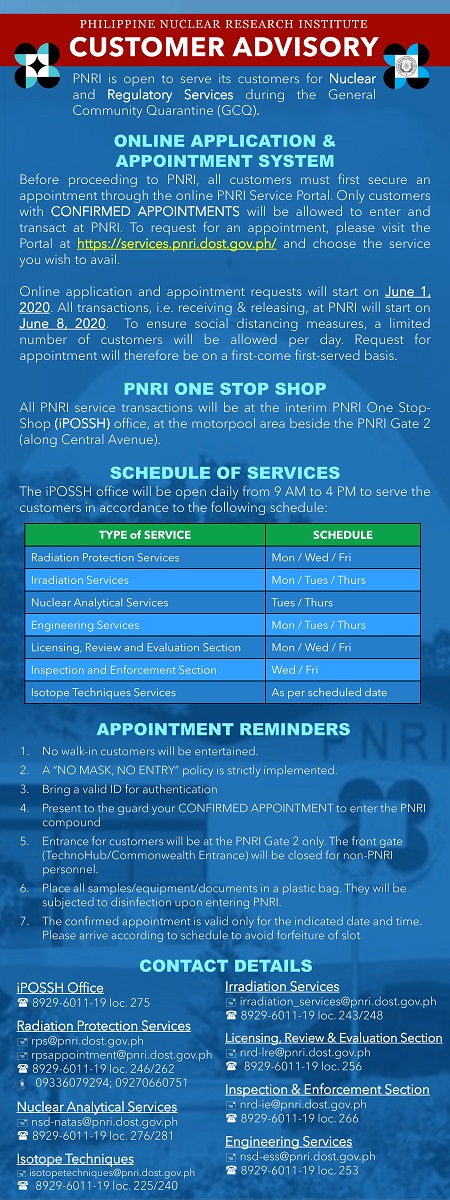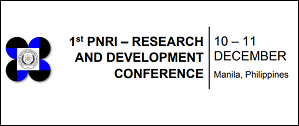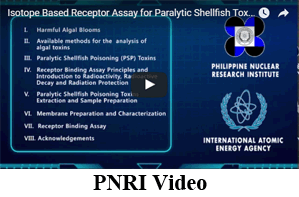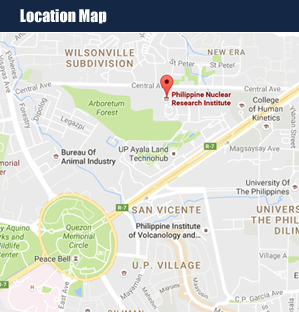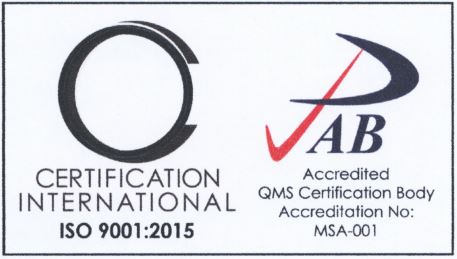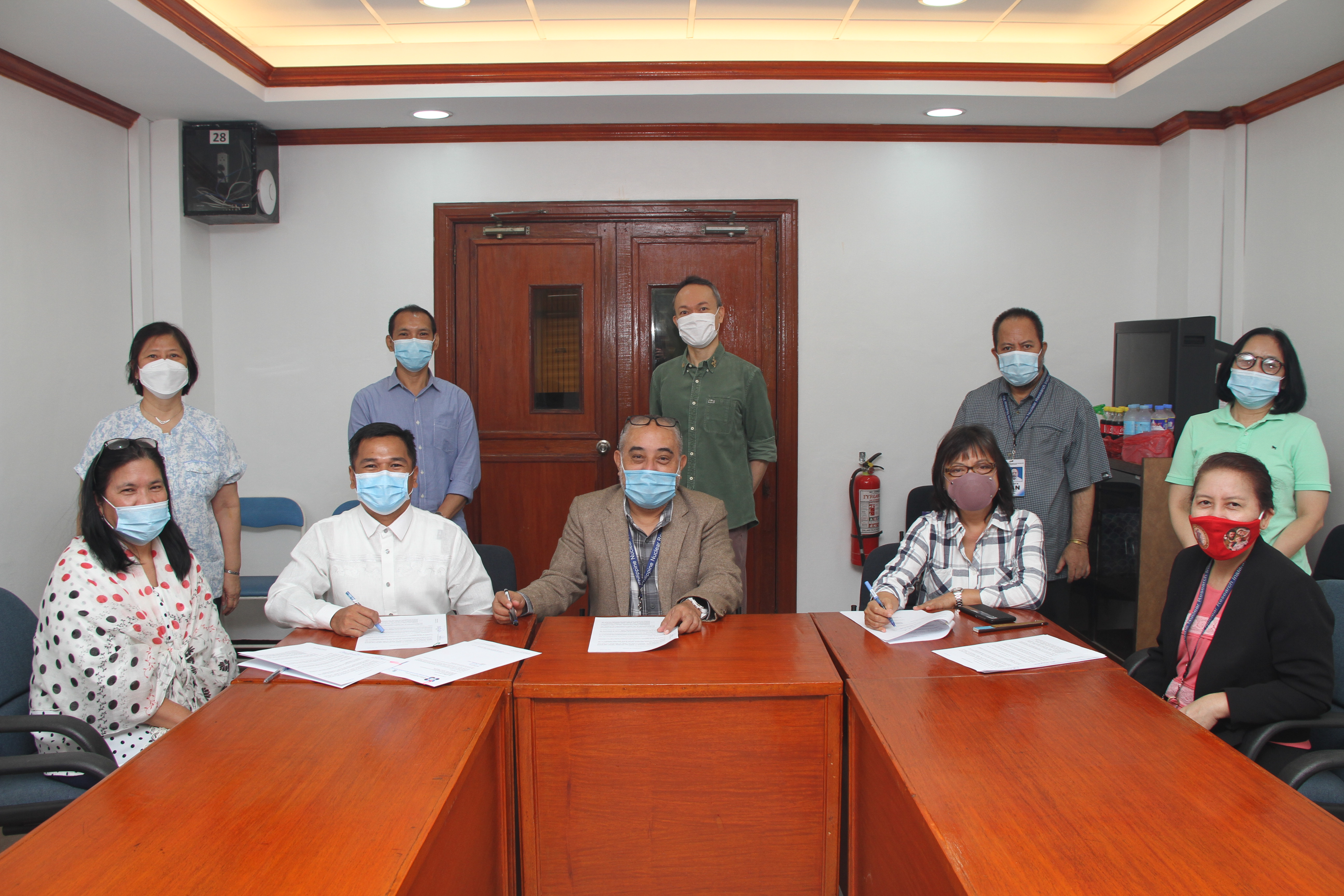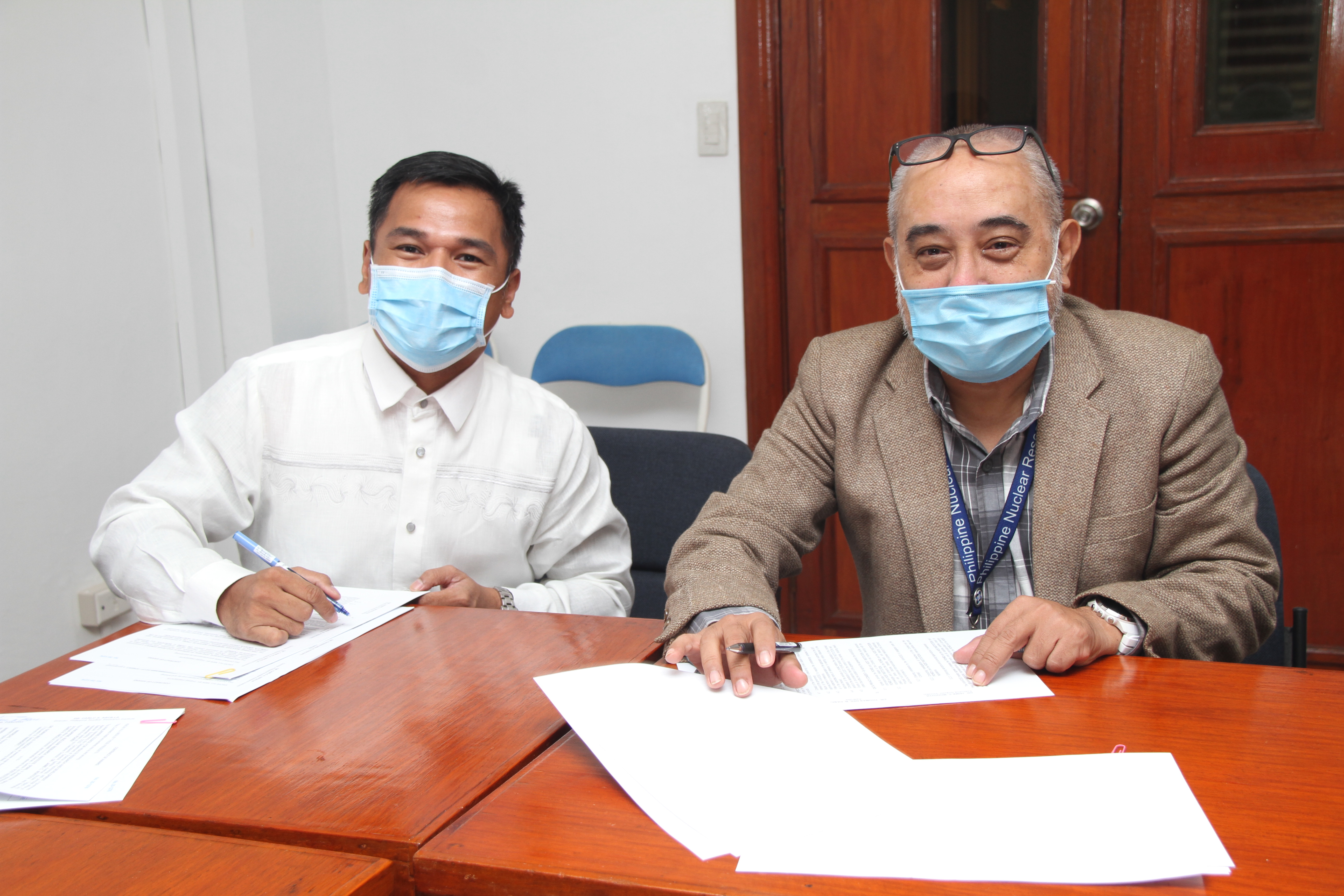DOST Secretary leads Philippine Delegation to IAEA 64th General Conference
- Details

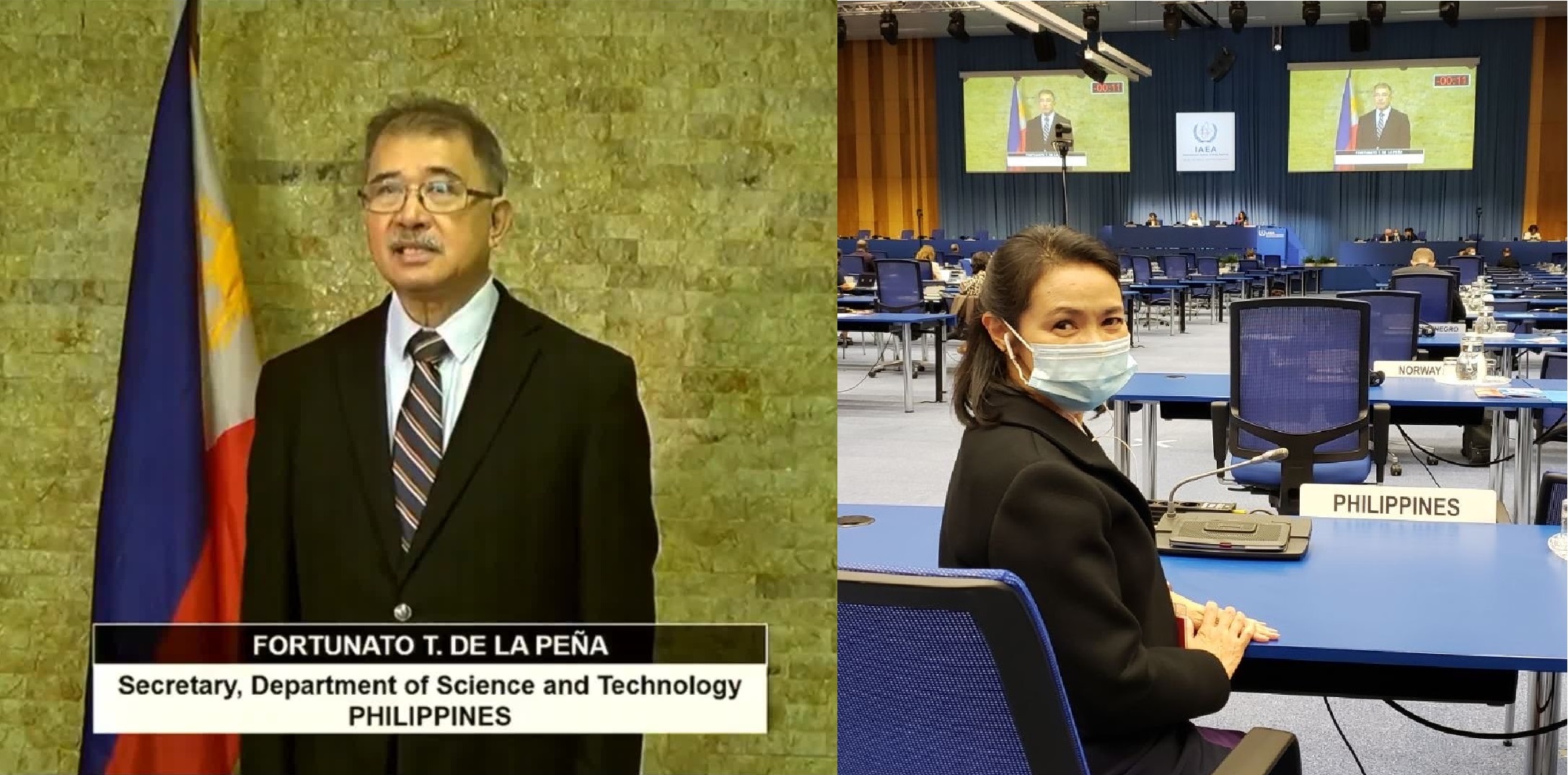
Left: Secretary De la Peña delivers his pre-recorded statement at the plenary of the IAEA General Conference
Right: Ambassador Maria Cleofe Natividad, who currently serves as ambassador to Austria and Permanent Representative to the IAEA, attends the plenary of the conference in person. (Photo from the Philippine Embassy in Austria)
DOST Secretary leads Philippine Delegation to IAEA 64th General Conference
Representing the country’s recent strides towards Atoms for Peace and Development, Secretary Fortunato de la Peña of the Department of Science and Technology (DOST) officially heads the Philippine Delegation during the opening of the International Atomic Energy Agency (IAEA) 64th General Conference on September 21, 2020 in Vienna, Austria.
Ambassador Maria Cleofe Natividad, who is the Philippines' ambassador to Austria and the Permanent Representative of the Philippines to the IAEA, attends the conference in person as the alternate head of the delegation due to the safety precautions for the ongoing COVID-19 pandemic.
In his pre-recorded address to the plenary session, the Secretary acknowledged the role of nuclear science and technology in fighting the current pandemic, thanking the IAEA for its COVID-19 assistance.
"The peaceful uses of nuclear energy have time and time again risen up to meet the world's pressing and complex challenges. It is no surprise, therefore, that nuclear technology has stepped up to meet the challenges posed by COVID-19."
Read more: DOST Secretary leads Philippine Delegation to IAEA 64th General Conference
The IAEA 64th General Conference
- Details

The IAEA 64th General Conference
The International Atomic Energy Agency (IAEA) will hold its 64th General Conference from September 21 to 25, 2020 at the Vienna International Centre in Vienna, Austria. The plenary session will be accessible through the link below:
http://streaming.iaea.org/21483
Apart from the plenary session, there will be several side events featuring topics related to nuclear science and technology. Due to restrictions arising from the COVID-19 pandemic, many of the events will be held online.
For more information on the General Conference and the side events, please refer to the link below:
https://www.iaea.org/about/governance/general-conference/gc64/general-information
The IAEA, which reports to the United Nations, is the international organization for the safe, secure and peaceful uses of nuclear science and technology across the globe. The Philippines became a Member State of the IAEA in 1958.
Balik Scientist continues collaboration with PNRI for nuclear medicine development
- Details
Balik Scientist continues collaboration with PNRI for nuclear medicine development
Dr. Thomas Neil Pascual (left), an international expert in nuclear medicine and Balik Scientist, formally continues his second year of collaboration with the Department of Science and Technology - Philippine Nuclear Research Institute (DOST-PNRI) during the contract signing on September 17, 2020 at PNRI. Also signing the agreement is PNRI Director Dr. Carlo Arcilla.
Formerly an expert from the International Atomic Energy Agency (IAEA), Dr. Pascual was in charge of pioneering capacity building projects for nuclear medicine in Africa as well as in Asia and the Pacific region.
He first served as Balik Scientist with PNRI in 2019. Among the ongoing projects resulting from his collaboration with PNRI is the establishment of a cyclotron and PET-CT facility which will help make early diagnosis of diseases more accessible to Filipinos.
The Balik Scientist Program is an initiative of the DOST since 1975 that aims to encourage Filipino, experts, scientists and researchers based in foreign countries to return to the Philippines and contribute their expertise to the improvement of various fields and sectors.
DOST backs revisit of nuclear energy policy to address rising power cost
- Details
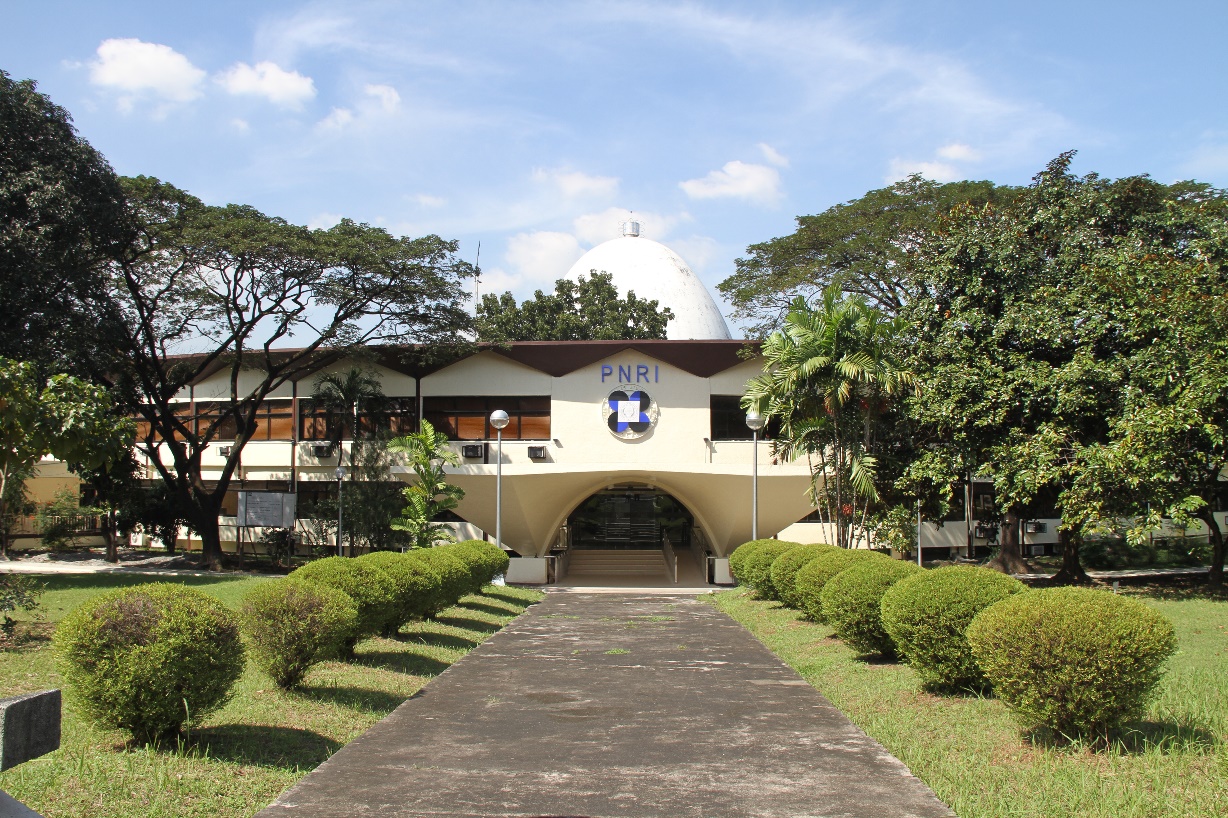
DOST backs revisit of nuclear energy policy to address rising power cost
At the heels of President Rodrigo Duterte’s signing of Executive Order 116, the Department of Science and Technology-Philippine Nuclear Research Institute (DOST-PNRI) throws support for the renewed efforts to engage in a nuclear power program as it also pushes for an independent regulatory body through a pending bill in Congress.
DOST-PNRI, the country’s lead agency in atomic research and development, underscores that adding nuclear to the current energy mix will pave the way for more efficient and less costly power cost.
The Institute is a member of the Nuclear Energy Program Inter-Agency Committee (NEPIAC) created by EO 116. NEPIAC, tasked mainly to study the adoption of a national position on nuclear power, is chaired by the Department of Energy (DOE) with the DOST as vice chair.
Read more: DOST backs revisit of nuclear energy policy to address rising power cost















